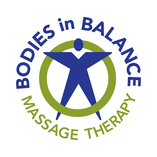
Most people have heard that massage relieves the symptoms of stress - but how? First, let’s define stress. A stressor is a situation orevent which upsets your balance and triggers a biochemical reaction called the“flight or fight” or stress response. The stress response helps you either flee from a stressor or stand up and fight. Signs of the stress response include increased perspiration, muscle tension, and heart rate; rapid and shallow breathing, rerouting of blood away from internal organs resulting in slowed digestion.
Life is full of challenges and having some stressors in life keeps things stimulating and interesting. But too much stress or a prolonged stressor can cause you to feel“stressed out” or in distress. A few signs that you’ve got more than an optimal level of stress in your life include chronic muscle tension (especially in the neck and back), anxiety, insomnia, fatigue, and a quick temper. Chronic stress can lead to health problems such as high blood pressure, heart conditions, headaches, ulcers, colitis, and backaches. Chronic stress has also been shown to weaken the immune system, making us more susceptible to disease.
Massage can relieve many of the mental and physical problems caused by chronic stress. Massage relaxes tight muscles and improves circulation, thus improving immune system function. A massage provides a time dedicated to relaxation, which can reduce anxiety. It also causes the body to release endorphins, nature’s pain reliever.
But perhaps most importantly, massage triggers the relaxation response, which is the flip-side of the stress response. Where the stress response readies the body for action, the relaxation response returns the body to normal, calm functioning. Your heart rate slows, your breath slows and deepens, muscles relax, and internal organ circulation and digestion improves.
Massage can relieve many of the mental and physical problems caused by chronic stress. Massage relaxes tight muscles and improves circulation, thus improving immune system function. A massage provides a time dedicated to relaxation, which can reduce anxiety. It also causes the body to release endorphins, nature’s pain reliever.
But perhaps most importantly, massage triggers the relaxation response, which is the flip-side of the stress response. Where the stress response readies the body for action, the relaxation response returns the body to normal, calm functioning. Your heart rate slows, your breath slows and deepens, muscles relax, and internal organ circulation and digestion improves.
To maximize the relaxation response during your next massage:
- Make sure the room is warm with low lighting, and that you feel comfortable.
- Tell me that relaxation is your goal.
- Make sure your cell phone is off.
- Tell me about specific areas where you feel tightness or tension.
- Minimize talking.
- Give yourself permission to relax and let go.



 RSS Feed
RSS Feed

